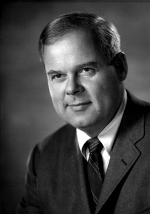


I proceed to show that this is not a purely quantum phenomenon, but can be expressed in classical mechanics as well. In particular, it requires matter to admit "internal" degrees of freedom, in that the position observable generates a maximal abelian algebra. I begin with an account of what it means for quantum theory to make such a distinction, by providing a novel derivation of the meaning of "time reversal." I then show that if Galilei invariant quantum theory does distinguish a preferred direction in time, then this has consequences for the ontology of the theory. This dissertation is about the sense in which the laws of quantum theory distinguish between the past and the future. Chapter 43 of Knox and Wilson (Eds.), The Routledge Companion to the Philosophy of Physics, Routledge, pp.605-619. We then present what we take to be a better and more general gauge argument, based on Noether's second theorem in classical Lagrangian field theory, and argue that this provides a more appropriate framework for understanding how gauge symmetry helps to constrain the dynamics of physical theories.Ģ021 "Time reversal". We review the most well-known application of this kind, known as the 'gauge argument' or 'gauge principle', discuss its difficulties, and then reconstruct the gauge argument as a valid theorem in quantum theory. Why is gauge symmetry so important in modern physics, given that one must eliminate it when interpreting what the theory represents? In this paper we discuss the sense in which gauge symmetry can be fruitfully applied to constrain the space of possible dynamical models in such a way that forces and charges are appropriately coupled. Norton, and then held the Provost's Postdoctoral Fellowship at the University of Southern California from 2012-2013, before finally settling in London at the LSE in 2013. in 2012 from the University of Pittsburgh under John Earman and John D. He has published in philosophy, physics, and history journals, receiving the Leverhulme Prize in 2017, an NSF grant in 2018, and a visiting Fellowship at Trinity College, Cambridge in 2019, during which time he taught in the Department of Applied Mathematics and Theoretical Physics (DAMTP) at the University of Cambridge. His fields of expertise lie in the intersection of philosophy and mathematical physics, with projects ranging from the arrow of time in particle physics, to the interpretation of general relativity, to the nature of the "observable", in addition to hosting a YouTube channel called Space, Time and Einstein. Bryan W Roberts is a philosopher of physics, Associate Professor of Philosophy, Logic and Scientific Method, and Director of the Centre for Philosophy of Natural and Social Sciences (CPNSS) at the London School of Economics.


 0 kommentar(er)
0 kommentar(er)
